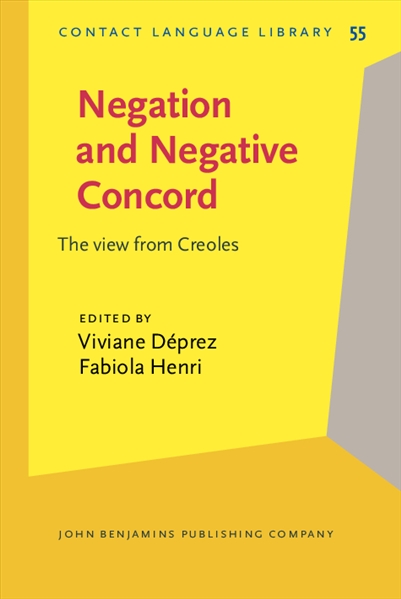
While universally present in languages, negation is well-known to manifest a surprising cross-linguistic diversity of forms. In creole languages, however, negation and negative dependencies have been regarded as largely uniform. Creole languages, ...
While universally present in languages, negation is well-known to manifest a surprising cross-linguistic diversity of forms. In creole languages, however, negation and negative dependencies have been regarded as largely uniform. Creole languages, Bickerton (1985) claimed, generally exhibit negative concord, a construction popularly dubbed 'double negation', where several expressions, each negative on its own, come together with a logic-defying single negation interpretation. While this construction -- problematic for compositionality if the meaning of sentences emerges from the meaning of their parts -- has fostered much research, the fertile data terrain that creole languages offer for its understanding is rarely considered. Aiming at bridging this gap, this book offers a wealth of theoretically informed empirical investigations of negative relations in a wide variety of creole languages. Uncovering a far more complex negative landscape than previously assumed, the book reveals the challenging richness that a thorough comparative study of creoles delivers.
Read Full Description >>
|
ISBN: 9789027201928 |
£88.00 |
